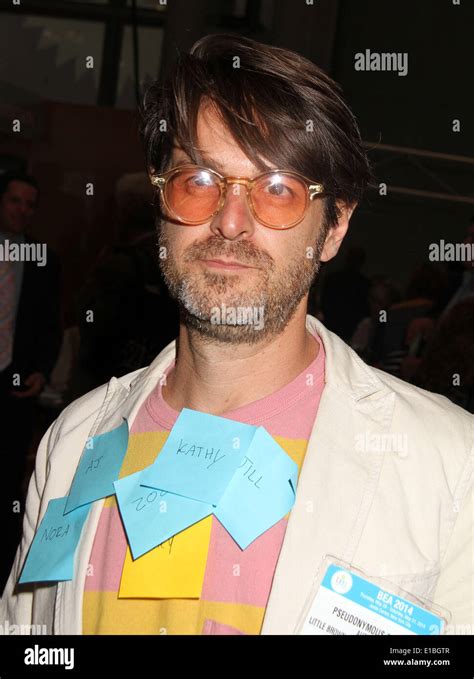A Quote by Carlos Fuentes
I don't think any good book is based on factual experience. Bad books are about things the writer already knew before he wrote them.
Related Quotes
One wouldn't want to say that what makes a good writer is the number of books that the writer wrote because you could write a whole number of bad books. Books that don't work, mediocre books, or there's a whole bunch of people in the pulp tradition who have done that. They just wrote... and actually they didn't write a whole bunch of books, they just wrote one book many times.
In my case, I made the decision early on that I was going to be very open about the book and claim upfront that each of the stories was based on my life experience. I think my reasoning goes back to what I was saying earlier, about wanting the book to be "more than a book," that I wanted the reader to feel a little unsettled about what they were reading: there's a core of factual truth here.
"Only write what you know" is very good advice. I do my best to stick to it. I wrote about gods and dreams and America because I knew about them. And I wrote about what it's like to wander into Faerie because I knew about that. I wrote about living underneath London because I knew about that too. And I put people into the stories because I knew them: the ones with pumpkins for heads, and the serial killers with eyes for teeth, and the little chocolate people filled with raspberry cream and the rest of them.
The people who review my books, generally, are kind of youngish culture writers who aspire to write books. When someone writes a book review, they obviously already self-identify as a writer. I mean, they are. They're writers, they're critics, and they're writing about a book about a writer who's a critic. So I think it's really hard for people to distance themselves from what they're criticizing.
When I was very little, say five or six, I became aware of the fact that people wrote books. Before that, I thought that God wrote books. I thought a book was a manifestation of nature, like a tree. When my mother explained it, I kept after her: What are you saying? What do you mean? I couldn't believe it. It was astonishing. It was like--here's the man who makes all the trees. Then I wanted to be a writer, because, I suppose, it seemed the closest thing to being God.
When it comes to partisan politics, everyone is a hypocrite. And all they care about is whether it hurts or helps them ... Is it good or bad for the Democrats? Is it good or bad for the Republicans? Is it good or bad for Jews, or good or bad for blacks, or is it good or bad for women? Is it good or bad for men? Is it good or bad for gays? That's the way people think about issues today. There is very little discussion of enduring principles.
I believe a good writer can write a good book with any sort of character, in any sort of setting, but I prefer to write about the outsider. It might just be because I've been one (or perceived myself to be one) for so much of my life. But the simple fact of being marginalized immediately brings conflict to a story before the narrative even begins, and that's gold for a writer because it means that your character already has depth before events begin to unfold.
When I was fifteen I wrote seven hundred pages of an incredibly bad novel - it's a very funny book I still like a lot. Then, when I was nineteen I wrote a couple hundred pages of another novel, which wasn't very good either. I was still determined to be a writer. And since I was a writer, and here I was twenty-nine years old and I wasn't a very good poet and I wasn't a very good novelist, I thought I would try writing a play, which seems to have worked out a little better.
There is this thing called the university, and everybody goes there now. And there are these things called teachers who make students read this book with good ideas or that book with good ideas until that's where we get our ideas. We don't think them; we read them in books. I like Utopian talk, speculation about what our planet should be, anger about what our planet is. I think writers are the most important members of society, not just potentially but actually. Good writers must have and stand by their own ideas.
Writers are funny about reviews: when they get a good one they ignore it-- but when they get a bad review they never forget it. Every writer I know is the same way: you get a hundred good reviews, and one bad, andyou remember only the bad. For years, you go on and fantasize about the reviewer who didn't like your book; you imagine him as a jerk, a wife-beater, a real ogre. And, in the meantime, the reviewer has forgotten all about the whole thing. But, twenty years later, the writer still remembers that one bad review.






































